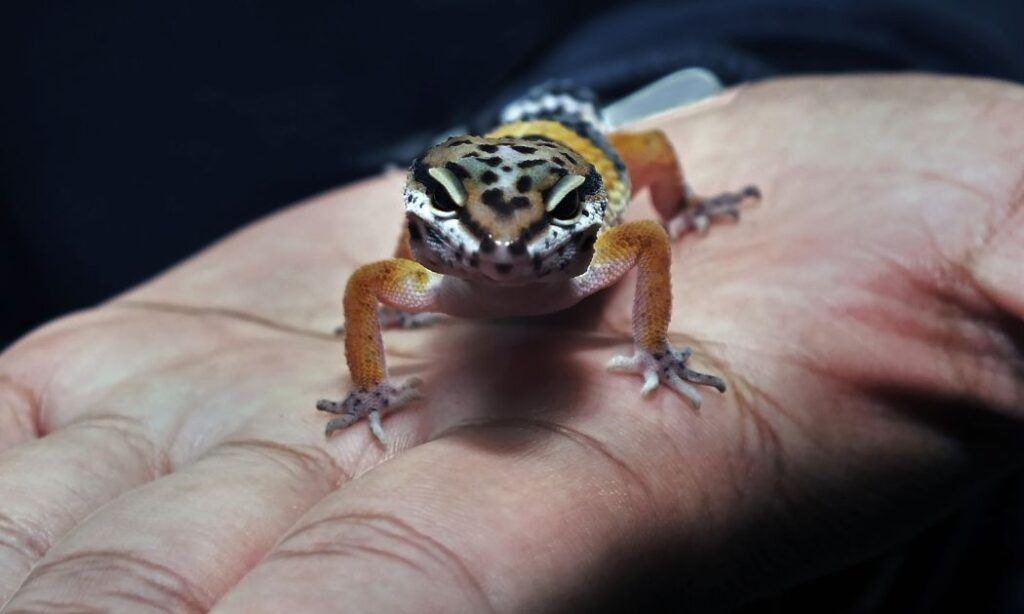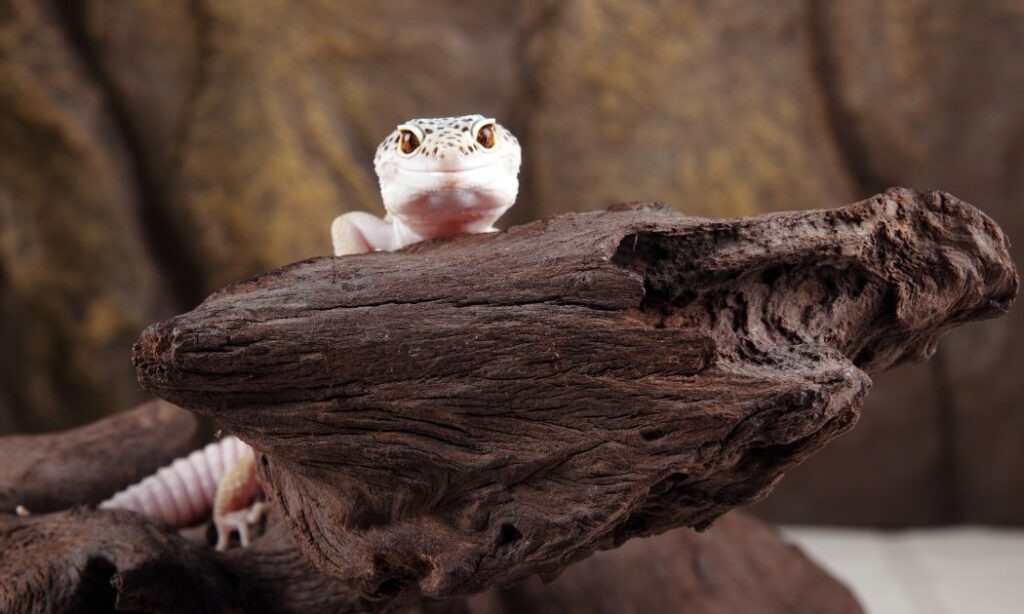Do geckos have feelings? It’s a question that has been debated by gecko owners and reptile researchers for years. Some say that their pet gecko shows signs of affection, while others believe that they are simply reacting to their owner’s cues. So, what is the truth? Do these little lizards have emotions? Let’s take a closer look.
Research Into Gecko Feelings and Emotions
Geckos are a diverse group of lizards that have been around for millions of years. They are known for their ability to climb walls, camouflage themselves in their environment, and produce chirping sounds. But do these creatures actually feel emotions like humans?
Research suggests that geckos possess basic emotional responses such as fear, curiosity, anxiety and even joy–similar reactions to those experienced by humans.
For instance, when exposed to a new situation or environment they can display signs of fear or caution before exploring further. Additionally, studies demonstrate that they exhibit different behavior patterns when interacting with familiar versus unfamiliar geckos and respond positively when accompanied by other geckos they know well.
Geckos have feelings: yes or no?
Like many animals, geckos have the capability to experience a range of emotions — from fear and aggression to comfort and companionship.
Although the nature of gecko emotions is difficult to ascertain with any certainty due their inability to verbally communicate with people, studies have indicated that geckos have the neurological development necessary for basic emotions.
Research has included geckos’ reactions when exposed to danger or new environments, which suggests they may be capable of expressing some form of fear or curiosity. Ultimately, it remains unclear exactly how geckos experience feelings, but these glimpses into their unique behavior provide greater insight into the emotional world of geckos.

Facts about geckos and their emotional behavior
Geckos, a type of lizard, have long been popular among pet owners, and we are only just starting to learn about their emotional lives through their behavior. While geckos do not have the same advanced cognitive abilities required for complex feeling and emotion, there is evidence to suggest that geckos can experience basic feelings such as pleasure, fright and pain.
For example, studies have shown that geckos react positively to stimuli they enjoyed before and become defensive when they are in unfamiliar environments or perceive a threat.
Ultimately, geckos may not be as emotionally advanced as other animals, but it appears clear that gecko behavior is capable of being influenced by both external and internal experiences.
How geckos express their emotions
Geckos are capable of showing their emotions just like people do. They would likely express their feelings through subtle body movements and vocalizations to show a range of reactions such as pleasure, fear, or surprise.
Geckos vocalize in squeaks, growls, and chirrups to show they are feeling content, scared, or uncomfortable with a situation. Geckos may also display emotions through facial expressions, posture changes, as well as physical contact with others geckos.
Additionally geckos likely experience internal emotional sensations similar to humans; scientists have determined geckos can remember events and learn from them like people do. All of these emotive behaviors demonstrate that gecko’s emotions run deep and should be respected!
Explanations for why geckos might not show emotions
Geckos have complex levels of cognition, enabling them to complete complex tasks such as foraging, navigation and communication.
However, geckos may lack the capacity to experience feelings and emotions that are found in other animals. This could be due to the gecko’s small brain size relative to its body mass, or it could be because geckos do not have facial features or expressions that hint at any emotional response.
Some geckos even lack vocal cords which further suggests that expressing emotions may not be within their capabilities. Further research is needed to better understand geckos’ cognitive ability and the possible reasons why they might not show any emotions.
The importance of understanding gecko emotions
The importance of understanding animal emotions is becoming increasingly clear as research into geckos, and other reptiles, continues.
The gecko, for example, has a myriad of emotions including fear, anger, joy and frustration. All these feelings have the power to influence gecko behavior and shape their lives in diverse ways. It is critical that we better recognize the wide range of gecko emotions so that we can promote their optimal well-being.
Given that geckos are just one example of the many animals who possess complex emotions, understanding their feelings on a deeper level is essential for our duty as caretakers to ensure all animals lead healthy, happy lives.

Though we may never know for certain whether or not geckos experience the same depth of emotions that we do, it is important that we continue to study animal behavior in order to gain a greater understanding of the inner lives of all creatures.
In conclusion, it is clear that geckos have the capacity to feel emotions. They are capable of feeling fear, joy, and pain just like any other animal. The evidence from scientific studies shows that geckos possess advanced cognitive abilities and respond to stimuli in the same way that other animals do.
It would be wrong to assume that they cannot feel emotions because of their small size or unusual appearance. We should recognize them as fellow creatures with feelings and treat them with kindness and respect.

Hi – I’m Erika, the lead gecko enthusiast here at Geckopedia! I write articles about pet geckos, including what to feed your leopard gecko and how to help your pet gecko live a long, happy life! I graduated with advanced degrees from UC-Berkeley, the University of Southern California (USC) and Indiana University-Bloomington, where I studied Biology and Animal Science. I use my experience to help others learn about gecko care, and I am an advocate for all topics gecko related!
